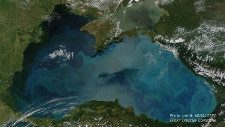Turkey’s Decline
Halil M. Karaveli
In the aftermath of the Arab Spring in 2011, Ahmet Davutoglu, then Turkish minister of foreign affairs and now prime minister, vowed that Turkey would be the “game setter” of the Middle East. Today, such notions of grandeur seem outrageous. After the bombing of a military convoy in Ankara on February 17, which the Turkish government blamed on the Kurdish People’s Protection Units, Davutoglu stated that the latest Kurdish territorial gains in Syria against Islamic rebels such as al Nusra Front—what Turkey calls “moderate” rebels—represent a threat to the “survival of the state” of Turkey. Ankara has apparently felt this way for a while. Since last year, the Turkish army has turned the Kurdish cities in Turkey’s southeast into war zones in its effort to dislodge Kurdish militants who have barricaded themselves in these areas. More recently, Turkey has even started firing on Kurdish forces in northern Syria.
Related Publications
-
ISDP Annual Report 2023
ISDP’s Annual Report for the year 2023. We look back on 2023, a year in which tensions and conflicts captured the strategic space in ISDP’s focus areas, making headlines around […]
-
A New Spring for Caspian Transit and Trade
Major recent shifts, starting with the Taliban victory in Afghanistan and Russia’s war in Ukraine have led to a resurgence of the Trans-Caspian transportation corridor. This corridor, envisioned in the […]
-
Turkey’s Opposition Can’t Win Without the Working Class
Kemal Kilicdaroglu, the leader of Turkey’s main opposition Republican People’s Party (CHP), has a realistic chance of defeating President Recep Tayyip Erdogan in the upcoming presidential election on May 14. […]
-
Promise And Peril In The Caucasus
America’s national security bureaucracy separates the Caucasus and the Middle East into different bureaus, with Central Asia in yet another office. This is part of the reason the U.S. has […]



